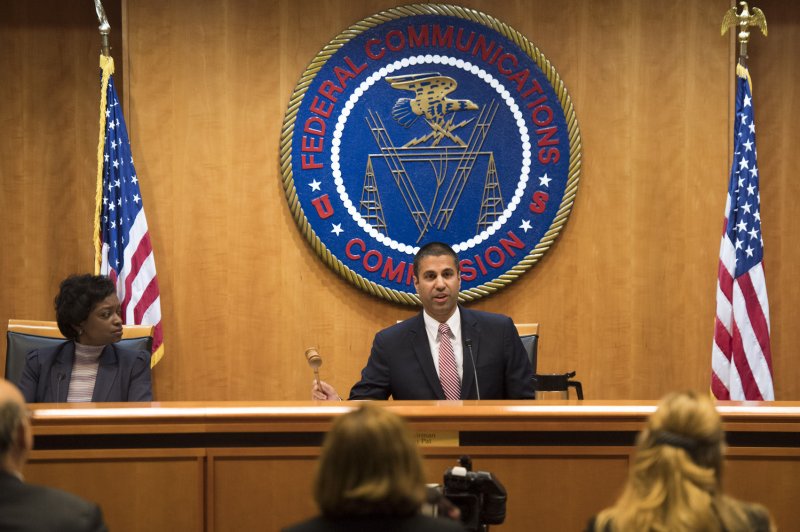FCC Chairman Ajit Pai speaks at a hearing on December 14, 2017, at FCC headquarters in Washington, D.C. Photo by Kevin Dietsch/UPI |
License Photo
Dec. 7 (UPI) -- The Federal Communications Commission said Friday it will investigate whether major U.S. wireless providers have submitted false data.
The FCC said it will temporarily suspend the start of a $4.5 billion program to improve wireless Internet service in rural and other underserved areas while the probe is underway.
Wireless providers were required to submit current data of their broadband coverage to determine which areas of the United States are most in need of support. A Microsoft study this week indicated 163 million people are without broadband-speed Internet access -- significantly more than the FCC's estimate of just 24.7 million.
"The FCC's Mobility Fund Phase II program can play a key role in extending high-speed Internet access to rural areas across America," said FCC Chairman Ajit Pai in a statement Friday. "In order to reach those areas, it's critical that we know where access is and where it is not.
"A preliminary review of speed test data submitted through the challenge process suggested significant violations of the Commission's rules. That's why I've ordered an investigation into these matters. We must ensure that the data is accurate before we can proceed."
FCC Commissioner Brendan Carr agreed with Pai's move to investigate.
"Earlier this year, I said I would monitor how the maps align with consumers' real-world experiences. Now that the challenge process has closed, the data provided confirm that Chairman Pai has made the right call," Carr said in a statement. "I heard from providers serving the Oklahoma panhandle and communities across rural America. I spent time in small towns and rural counties in Mississippi, Nebraska, Colorado, and other states and heard firsthand the challenges that many Americans face in getting a high-speed, 4G LTE connection. That's why it's so important to ensure the data underlying our broadband maps are accurate.
"It is deeply concerning that FCC staff's preliminary analysis of the challenge data shows that one or more major carriers potentially violated [FCC] mapping rules and submitted incorrect maps."















